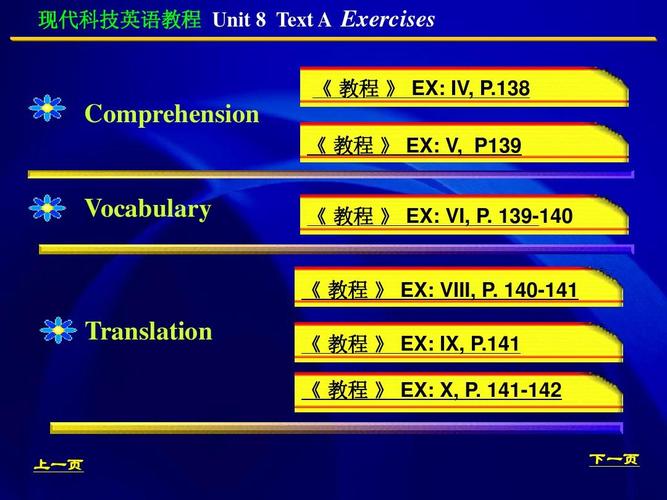您所在的位置:首页 - 经验 - 正文经验
1.ArtificialIntelligence(AI)
![]() 桉欣
2024-04-13
【经验】
248人已围观
桉欣
2024-04-13
【经验】
248人已围观
摘要ModernTechnologyTerminologyinEnglishModernTechnologyTerminologyinEnglishModerntechnologyhasrevolutio
Modern Technology Terminology in English
Modern technology has revolutionized the way we live, work, and communicate. Here are some key terminologies related to modern technology in English:
AI refers to the simulation of human intelligence in machines that are programmed to think and learn like humans. It is used in various applications such as virtual assistants, autonomous vehicles, and facial recognition systems.
IoT is a network of interconnected devices that can communicate and exchange data with each other. These devices can range from ***art home appliances to industrial sensors, enabling automation and efficiency in various sectors.
VR immerses users in a completely virtual environment, while AR overlays digital information onto the real world. Both technologies are used in gaming, education, healthcare, and other industries to enhance user experiences.
Blockchain is a decentralized and distributed digital ledger that records transactions across multiple computers. It ensures transparency, security, and immutability, making it ideal for applications such as cryptocurrency and supply chain management.
Big data refers to large volumes of structured and unstructured data that are generated at a high velocity. ***yzing big data can reveal patterns, trends, and associations, leading to insights that drive decision-making in businesses and research.
Cloud computing involves delivering computing services over the internet, such as storage, servers, databases, networking, and software. It offers scalability, flexibility, and cost-efficiency for organizations of all sizes.
Cybersecurity focuses on protecting computer systems, networks, and data from cyber threats such as hacking, malware, and phishing. It encompasses technologies, processes, and practices that safeguard digital assets from unauthorized access or damage.
Machine learning is a subset of AI that enables machines to learn from data and improve their performance without being explicitly programmed. It powers applications like recommendation systems, image recognition, and predictive ***ytics.

5G is the fifth generation of wireless technology that offers faster speeds, lower latency, and increased connectivity for mobile devices and IoT applications. It enables innovations such as autonomous vehicles, ***art cities, and remote healthcare.
Quantum computing utilizes quantum-mechanical phenomena to perform operations on data. It has the potential to solve complex problems exponentially faster than classical computers, leading to advancements in cryptography, optimization, and scientific research.
Understanding these modern technology terminologies is essential for staying informed and adapting to the rapidly evolving digital landscape.